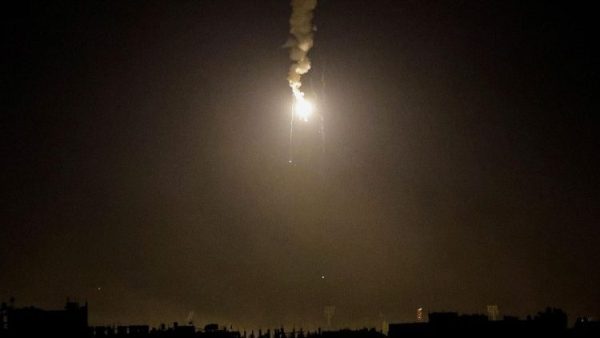Al-Aqsa Professor: Pope Francis has ‘clear voice’ on Gaza, more must be done
 In an interview with Vatican News, Jerusalem-based Professor Mustafa AbuSway describes the “unbridled carnage” in Gaza, and thanks Pope Francis for his efforts for a ceasefire, saying “we need to hear his voice more and more.”
In an interview with Vatican News, Jerusalem-based Professor Mustafa AbuSway describes the “unbridled carnage” in Gaza, and thanks Pope Francis for his efforts for a ceasefire, saying “we need to hear his voice more and more.”
Pope Francis’ calls for a ceasefire in Gaza are a “clear voice” that “we need to hear more and more.”
That’s according to Mustafa AbuSway, the Imam Al-Ghazali Chair at the Al-Aqsa Mosque, one of Islam's holiest sites.
In an interview with Vatican News, the Palestinian professor – who also teaches at Al-Quds University – discussed the humanitarian crisis in Gaza, the role of the Catholic Church in peacebuilding, and how his own Islamic faith helps him to navigate these difficult times.
“Unbridled carnage” in Gaza
As he is based in Jerusalem, Professor AbuSway said he himself is “fine, relatively speaking”.
He did describe, however, the “psychological stress, the sadness, the frustration” of following the situation in Gaza and the northern West Bank from afar.
“This is really something new,” he said, “this unbridled carnage being streamed live to all the globe. This is what distinguishes this event from previous wars: we have images of all the suffering.”
One child dies every ten minutes in Gaza, he said.
Despite this, however, “it was not the death of a child, but the survival of one, that made me really very, very sad”. A video had emerged before our interview, Professor AbuSway said, of a child buried alive under rubble attempting to free herself with one hand.
The fact that such Palestinian suffering is largely being ignored by Western governments, he added, brings to his mind Jesus’ saying that “with their ears they barely hear, and they have closed their eyes.”
The role of the Church
Professor AbuSway noted that while many Western governments have refused to call for a ceasefire, “there is a clear voice from Pope Francis, thankfully.”
“The Pope,” he said, “has a moral voice that we need to hear more and more.”
Professor AbuSway, a graduate of the Catholic institutions Bethlehem University and Boston College, added that “the Catholic Church is part and parcel of the Palestinian mosaic, the social fabric.”
“We have been in this together for all these decades of human suffering. And we speak with one moral voice.”
Professor AbuSway also mentioned with approval the Kairos Document, a text written by various Palestinian Christian leaders on the subject of the Israel-Palestine conflict.
Professor AbuSway on the Catholic Church's role in peacebuilding
Spirituality in times of crisis
The conversation then turned to Professor AbuSway’s Islamic faith, and how it helps him to navigate difficult times.
“Many people in the West,” he said, “have noticed that people who lost their whole families, they kept saying, ‘Alhamdulillah, Alhamdulillah’ (Praise be to God).”
“People were puzzled,” AbuSway noted. “Why would Muslims say ‘Thank God’ when they are hit with such tragedies?”
“We do,” he explained, “say ‘Praise God’ for every state of affairs, knowing that everything is in the hands of God, but also knowing that people can really act to stop all this violence.”
“So we do have this spiritual resource, and also know that everything in the universe really is within God’s dominion, that the will of God ultimately prevails.”
Professor AbuSway on Islamic spirituality in times of crisis
Hopes for future
Turning to his vision for a future peace agreement, Professor AbuSway expressed his hope that “these tragic events will awaken human consciousness”.
“We just hope that those who can make a difference make the right decision,” he said, “and get on the right side of history.”
An eventual peace settlement, he stressed, would have to involve “ending the hostilities, ending the occupation, and employing a two-state solution along the June 4th, 1967 borders.”
“We just need to live next to each other and just allow time to heal the wounds as much as possible.”
Joseph Tulloch
Source: vaticannews.va/en

